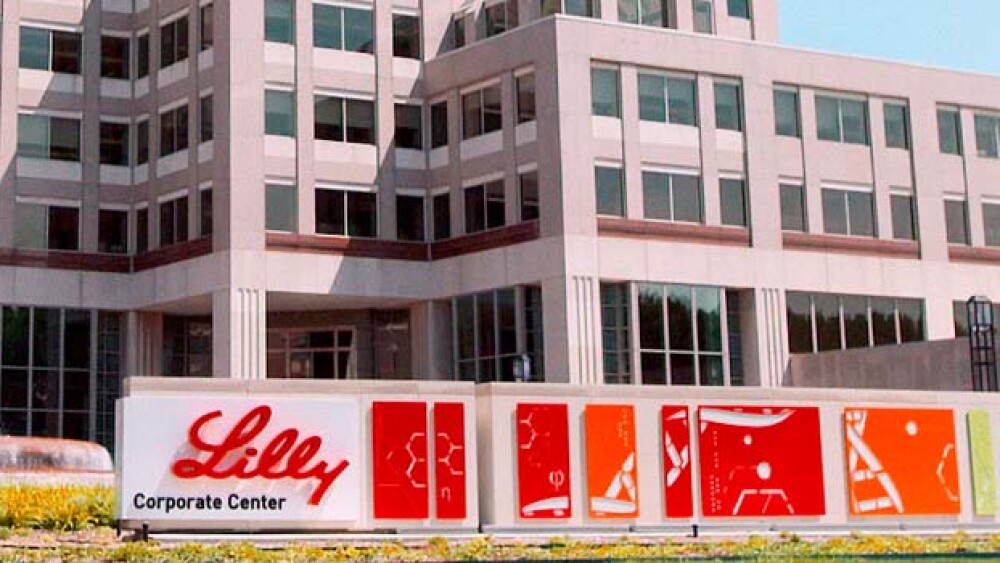Eli Lilly and Company reported that its Emgality met the primary and all key secondary endpoints in its Phase III CONQUER study for chronic and episodic migraine.
Eli Lilly and Company reported that its Emgality (galcanezumab-gnlm) met the primary and all key secondary endpoints in its Phase III CONQUER study for chronic and episodic migraine. The trial was in migraine patients who didn’t respond to two to four standard-of-care migraine preventive drugs.
The CONQUER Phase III trial was conducted in 12 countries. It enrolled 462 patients with chronic or episodic migraine with a documented history of treatment failures to two to four standard treatments. Treatment failure was defined as inadequate results after at least two months of treatment at the maximum tolerated dose or stopped taking the drug for safety/tolerability reasons.
The baseline for the patients involved in the trial was 13.2 on average monthly migraine headache days. The patients were randomized 1:1 to receive Emgality 120 mg/month with a 240 mg loading dose or placebo for three months. Patients who completed the double-blind phase of the trial could enter a three-month open-label treatment phase with the drug.
The trial met is primary objective, superiority of Emgality compared to placebo in mean change from baseline in the number of monthly migraine headache days across months one through three. Emgality decreased monthly migraine headache days by 4.1 days compared to one day with the placebo.
Secondary endpoints included various quality-of-life metrics, such as the degree to which migraine limited daily social and work activities, feeling more energetic, less tired, improved concentration, and others.
“Preventive treatment failure has been a common occurrence among patients with migraine,” stated Gudarz Davar, Lilly Bio-Medicines’ vice president, neurology development. “The CONQUER study applied strict and rigorous criteria to identify and enroll patients with chronic and episodic migraine who had failed multiple migraine preventive treatments, with the goal of understanding whether Emgality may be an effective option for patients with such significant unmet need.”
Emgality is a monoclonal antibody that binds to calcitonin gene-related peptide (CGRP). It was approved in September 2018 by the U.S. Food and Drug Administration (FDA) for the prevention of migraine in adults and in June 2019 for the treatment of episodic cluster headache in adults. It was also approved in Europe in November 2018 for the prophylaxis of migraine in adults who have at least four migraine days per month.
Other competitors in the GCRP migraine market include Amgen’s Aimovig and Teva Pharmaceutical’s Ajovy. Lilly’s Emgality took 41% of the new market share at the end of the second quarter, an increase of 9% from the end of the first quarter.
Sales aren’t as indicative because Lilly took an early strategy of distributing the drug for free. For the quarter, sales hit $34 million, but at the second-quarter report, Lilly executives reported that 75% of Emgality prescriptions are now paid.
This is good news for Lilly, which is depending on new drugs for growth. That includes Verzenio for breast cancer, Olumiant and Taltz for inflammatory diseases, and Jardiance for diabetes. And, of course, Emgality for migraine. Lilly’s drug prices in general are slipping around the world, with prices dropping 4% in the U.S., 2% in Europe, 2% in the rest of the world, and remained flat in Japan. Sales volumes grew in the U.S. by 5%, by 8% in Europe, and by 14% in Japan. After losing patent protection for erectile dysfunction drug Cialis, sales dropped 63% in the second quarter to $200 million. Humalin for diabetes dropped 12% to $677 million and Forteo for osteoporosis dropped 17% to $360 million.





